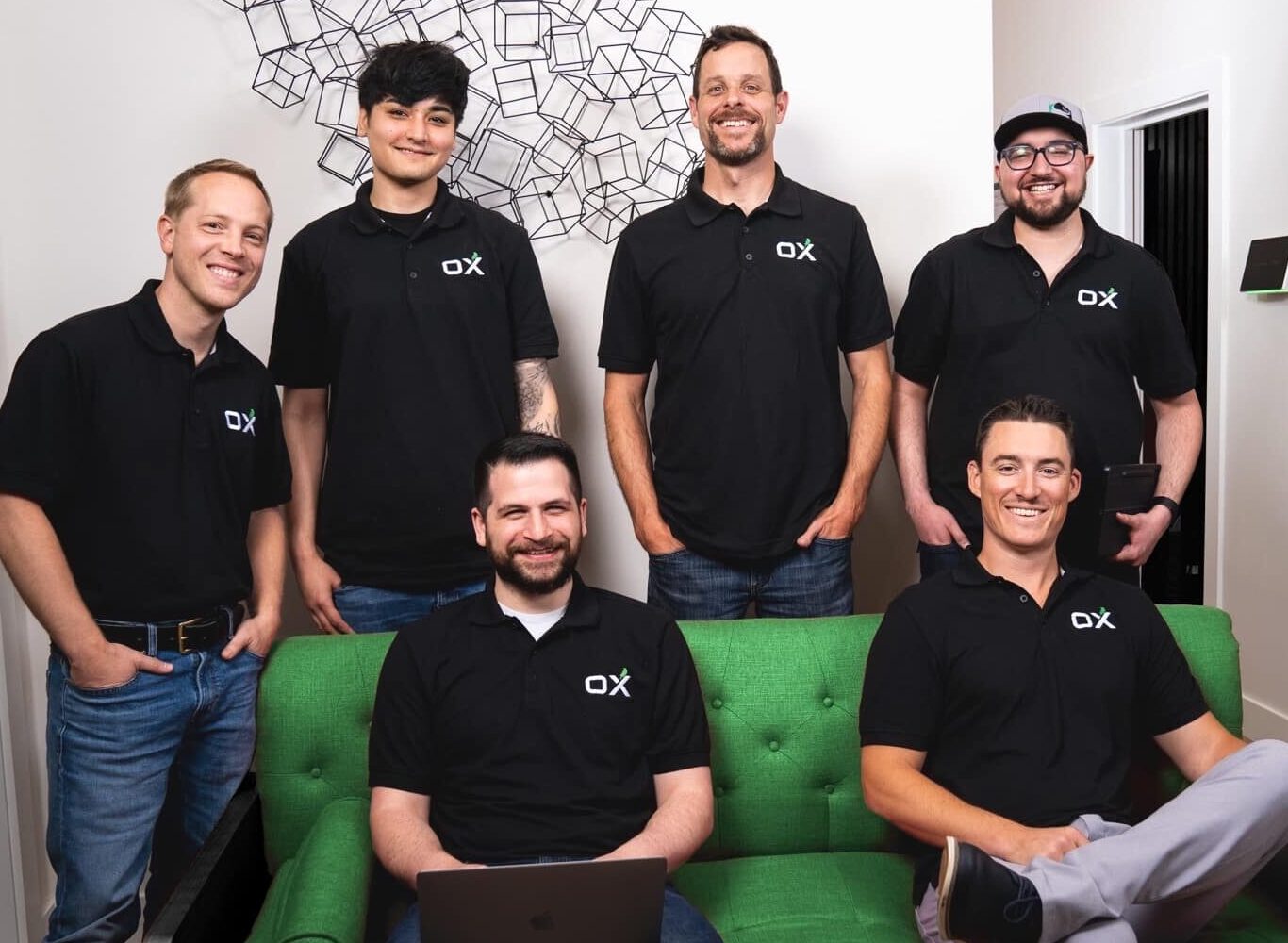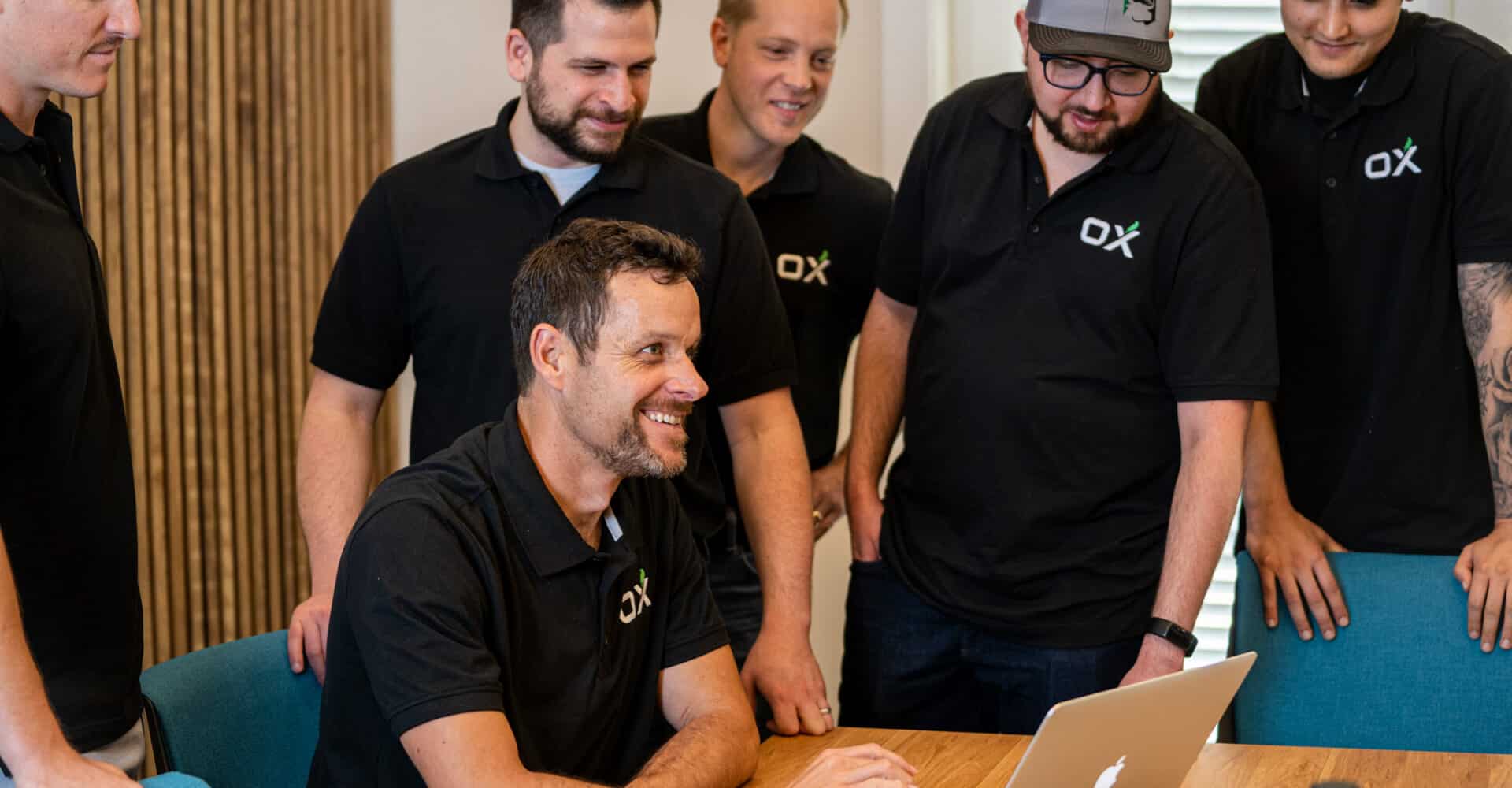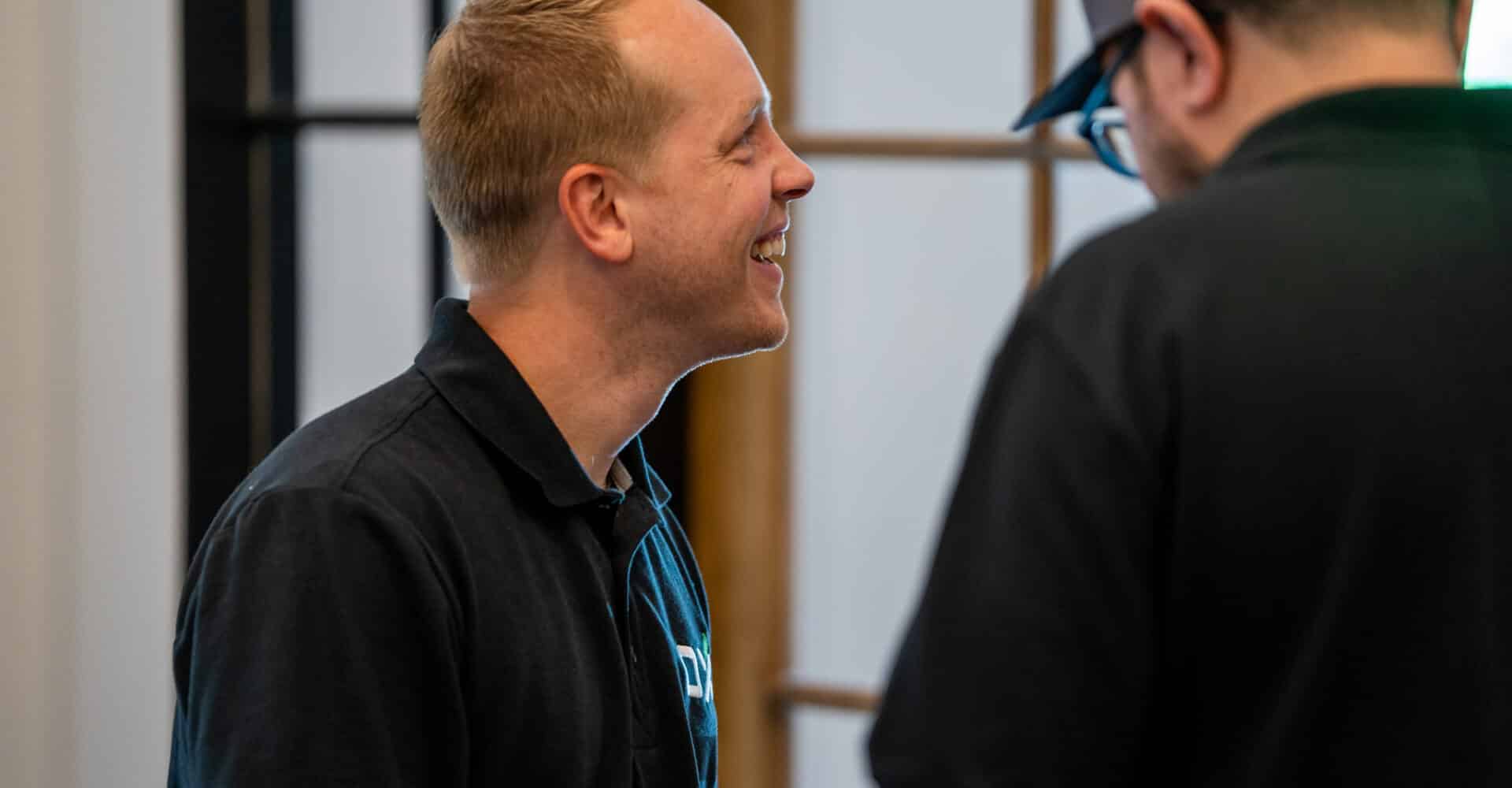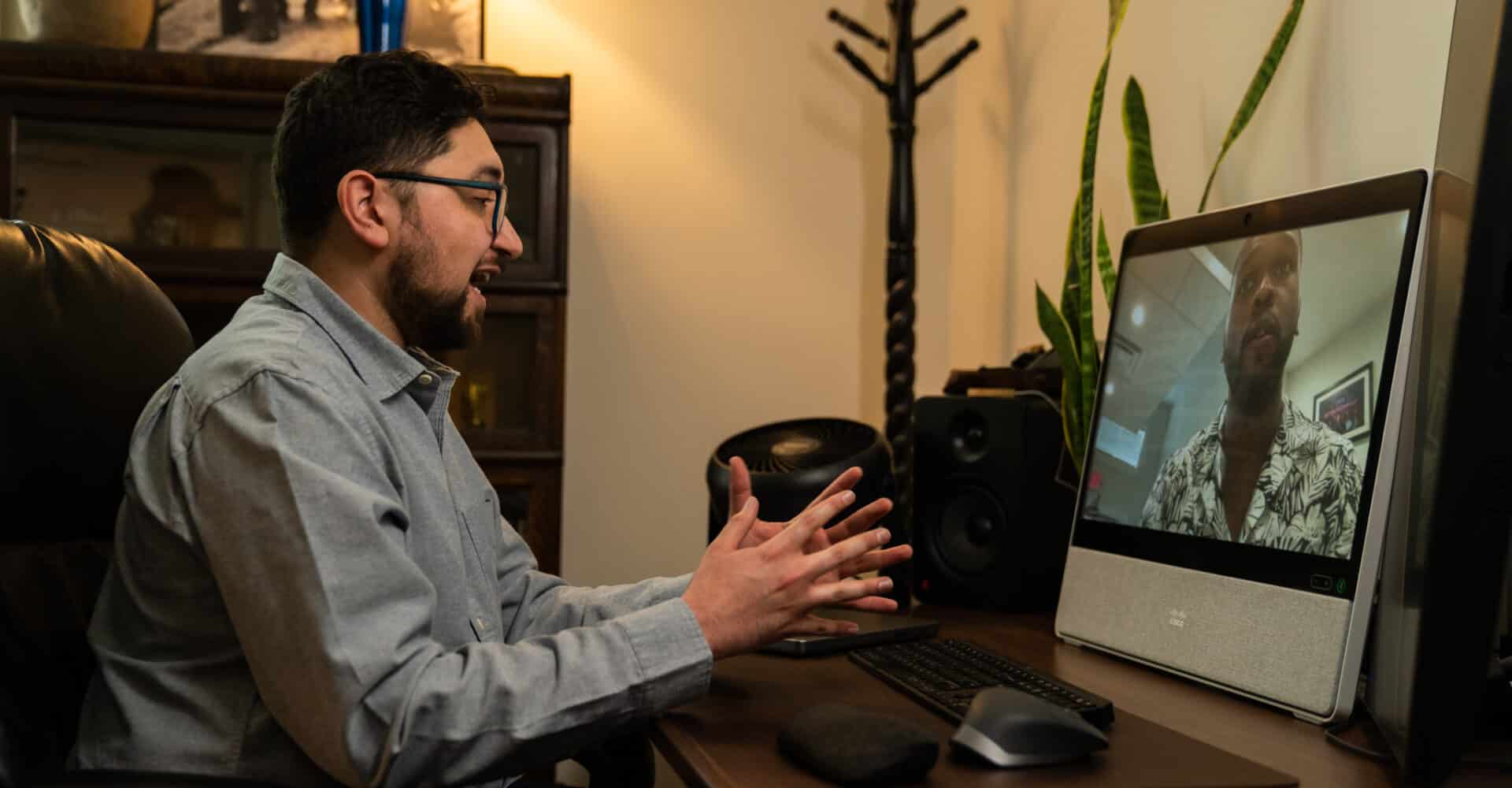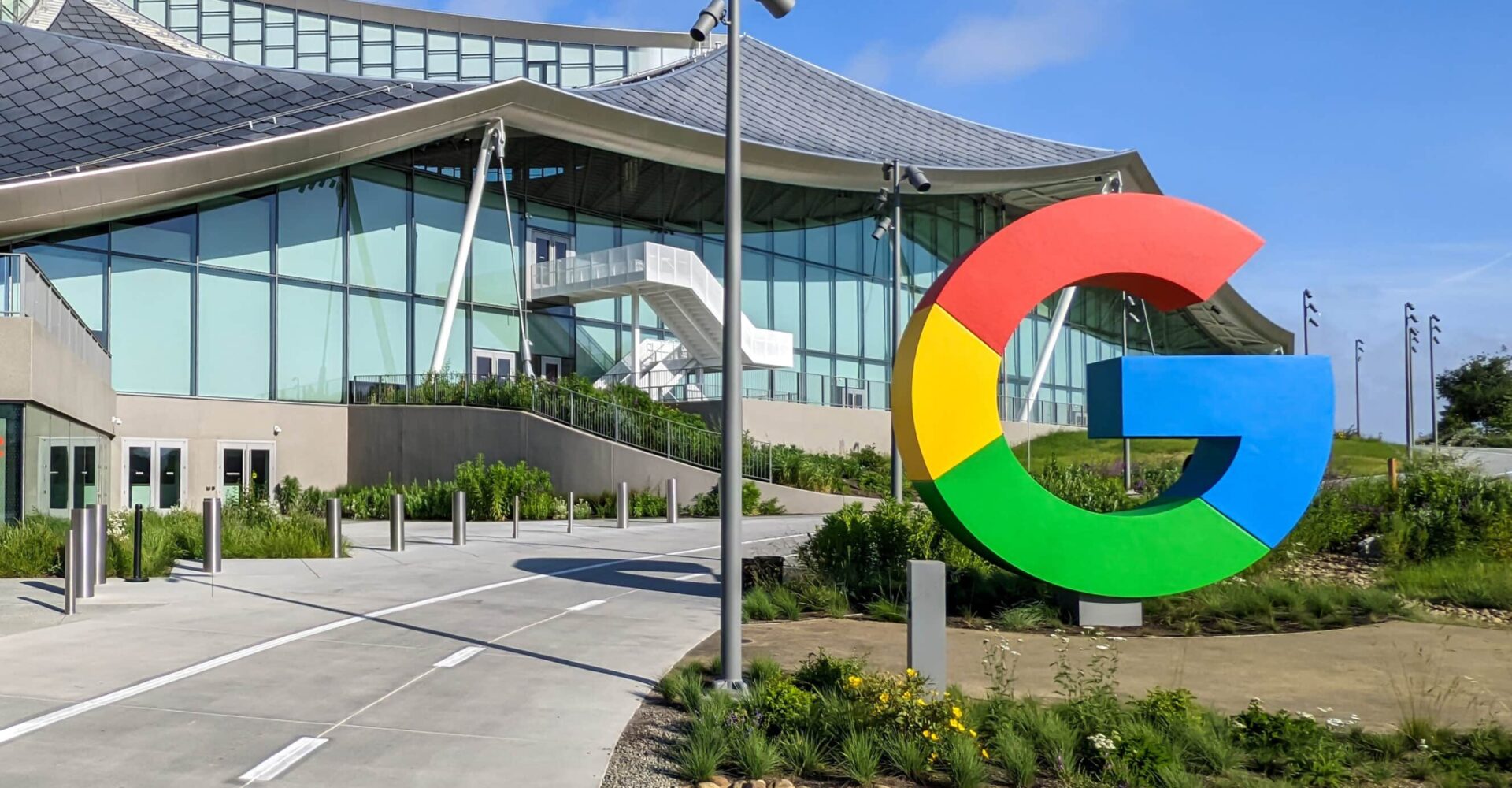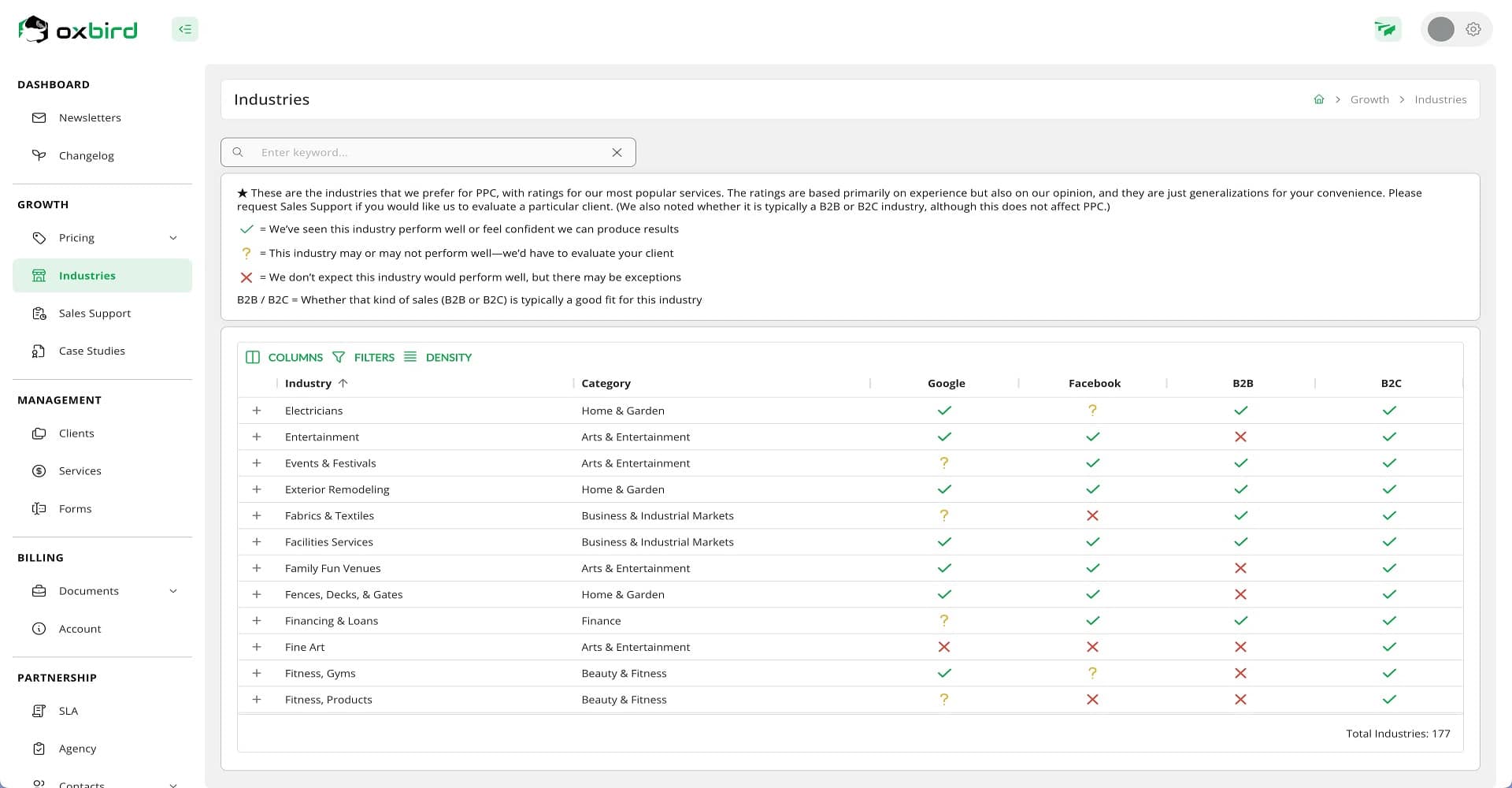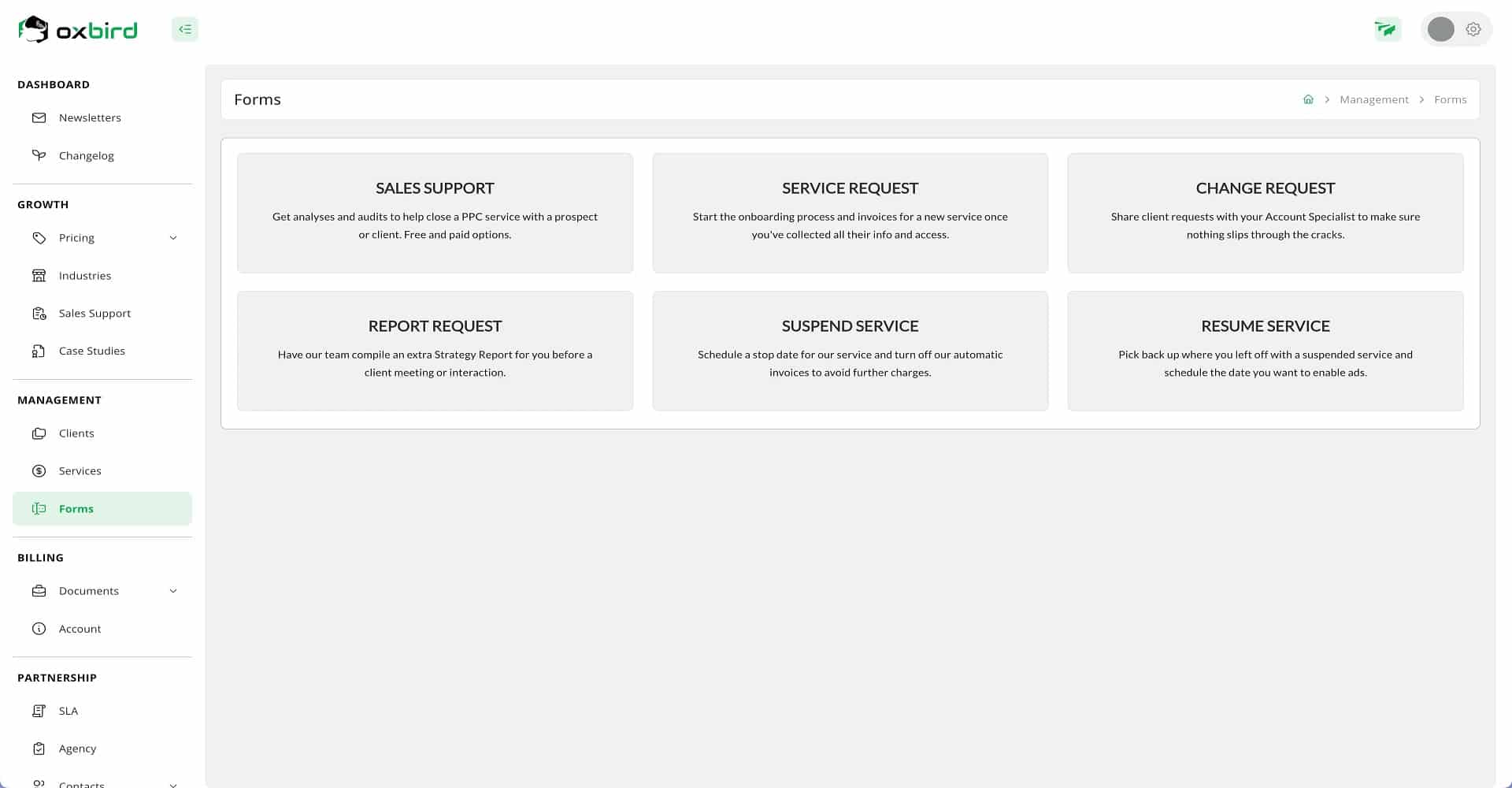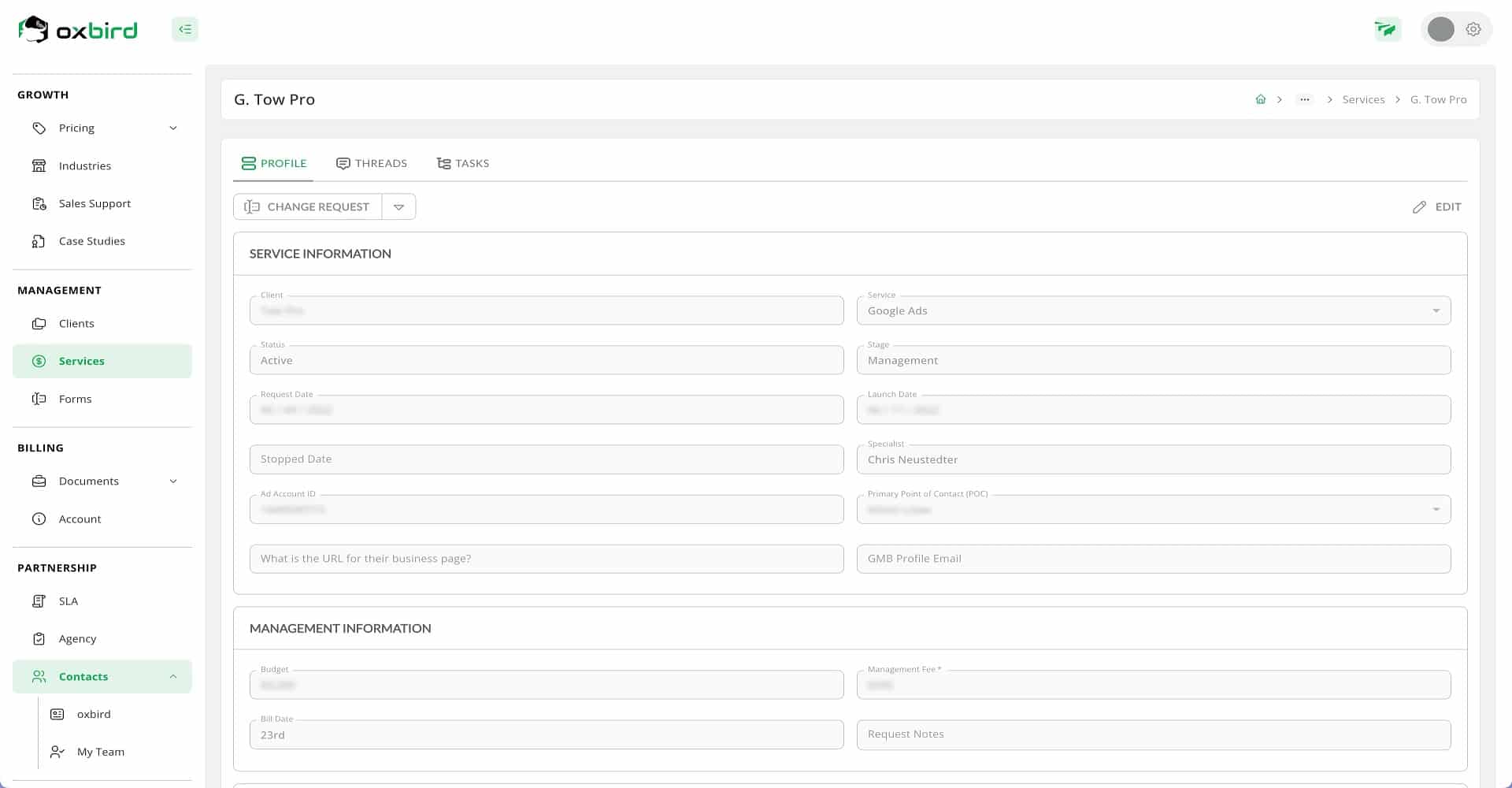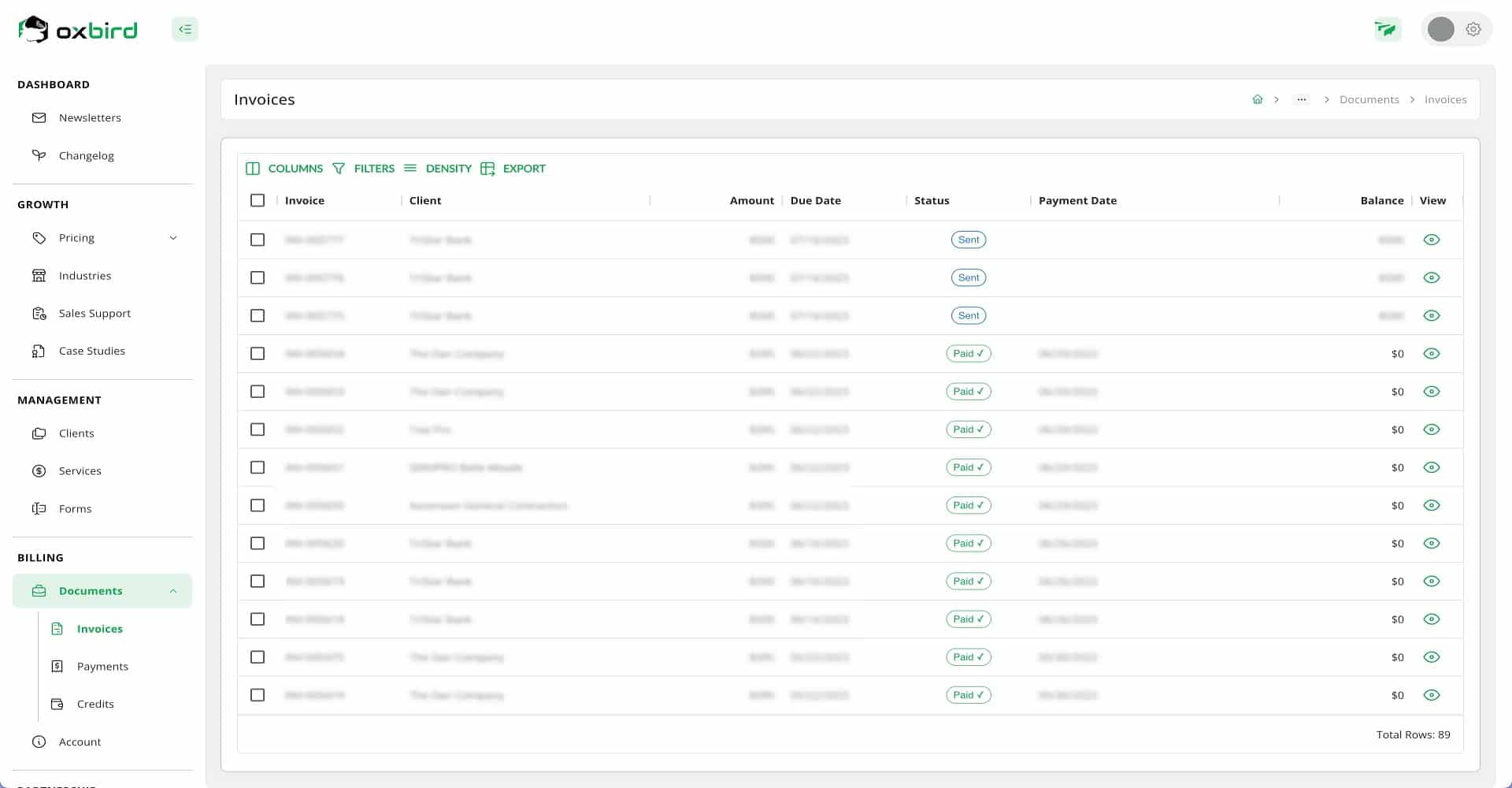Guaranteed to reduce client churn and increase productivity, or your money back.
White Label PPC without Amateurs, Offshoring, or Robots.
Testimonials
Our Services
Next Steps
First, we’ll provide a deep-dive document outlining precise information on all our services like sales support, onboarding, management, reporting, and landing pages. The document provides an overview of our approach along with over 30 distinct upgrades and discounts. It is designed to be your playbook for brokering effective PPC relationships.
This involves a face-to-face meeting with our CEO, Daniel Holdeman, where you can describe your business needs, gain insights about oxbird’s business and team, determine your priorities, review pricing, and set up your Pivot and Twist accounts.
At this stage, we’ll ask you to provide rudimentary information, performance goals, targeting objectives, and budget details about your first for efficient service provision.
You’ll meet with our Director of Paid Media to set up your billing profile; review some functionalities in Pivot and Twist; explore our onboarding, management, and reporting processes; and share access to your first client’s assets.
Whenever you request a new service, you’ll get to meet with your assigned manager. On this call, you’ll discuss specific strategies for targeting, budget allocation, tracking, reporting, and relationship management.
This final step involves reviewing and approving the prepared ad copy and targeting strategy. Once everything is in order, oxbird will request your approval to launch the campaigns.
Our Case Studies
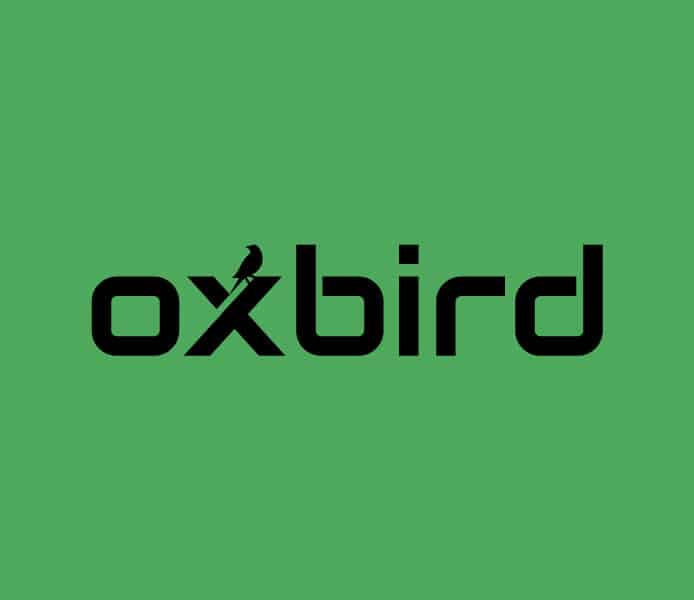
Local Business Marketing Solutions
Local Business Marketing Solutions

Harbinger Marketing
Harbinger Marketing
Innovative Time Savings
Introducing Pivot – our exclusive partner interface that revolutionizes how you expand your paid media offerings. We built Pivot with a single focus in mind: to streamline your experience by enhancing your productivity. With its comprehensive feature set, Pivot empowers you to effortlessly handle client information, leverage our top tools, and check on projects–all at your convenience, around the clock.
Experience organized onboarding, receive in-depth audits and analyses, project your Return on Ad Spend (ROAS), efficiently manage records, customize services to meet your evolving needs, quickly submit requests whenever required, and seamlessly schedule meetings, all within the intuitive interface of Pivot.
What You Get
Expertise
Cost Reduction
Product Quality
Responsiveness
Consistency
Get Pricing
Want to know our minimum fees for onboarding and management? How many hours will we spend on your clients? Learn everything you need to know for your PPC pitch.
